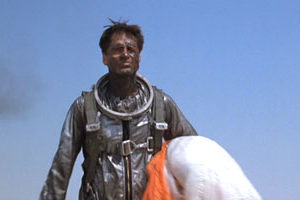Failure Is Not an Option: Mission Control From Mercury to Apollo 13 and Beyond – Book Review
I ordered Failure Is Not an Option: Mission Control From Mercury to Apollo 13 and Beyond by Gene Kranz from Audible because I am a big fan of the space program and grew-up during the peak years of our conquest.
The paperback version is 416 pages long and was published by Simon & Schuster in 2009. The Audible version is 18 hours and 17 minutes long and was released in 2011. Danny Campbell handles the narration in the audiobook and I must say, it is a little like listening to your grandfather, telling a story.
I was very familiar with most of the events depicted in the book having watched them on televisions at school and at home. I also enjoy the movies and documentaries about the space program such as The Right Stuff (1983), Apollo 13 (1995), “From the Earth to the Moon” a 12-part 1998 HBO mini-series from 1998, and the documentary “In the Shadow of the Moon” (2007).
I won’t say that I didn’t learn new information from this book because I did. However, it was like pulling teeth. You had to pay a heavy price for each nugget while you learn about people’s hair color, accents, and smoking habits before finding out how they reacted in an emergency.
The book is marketed as a first-hand account of a NASA flight director that worked the Mercury program, the Gemini program, and the Apollo program. Kranz was all of that and was instrumental in solving some of the most well-known space emergencies such as Apollo 13 and many lesser-known events. But to turn this into a boring narrative is quite a feat of writing. I never expected much from Kranz as a writer but he had such good material to work with it is hard to believe how it came out. One purchaser wrote that it makes the space program have “…all the cachet of a Thursday afternoon at the local Post Office” while another said that “he [Kranz] makes it as stale as week-old bread.
One thing that Kranz did do well was articulate, how far the USA has fallen behind in technology and science when we virtually abandoned our space program. In a somewhat sad part of the book, he makes a case for our return to leadership.
Would I recommend this book if you are interested in the space program? I would have to say yes, but only after you have read everyone else’s books.









Leave a Reply
Your email is safe with us.